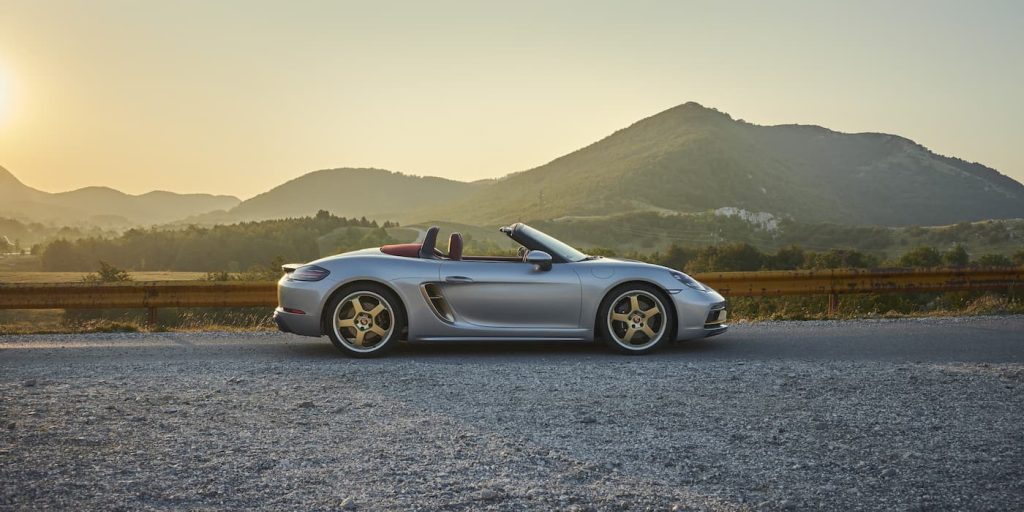
The electric Porsche 718 lineup is set to launch next year, bidding farewell to the gas-powered 718 Cayman and 718 Boxster. But that plan has hit a major snag in the fallout over Swedish battery maker Northvolt filing for bankruptcy.
Back in 2022, the Volkswagen subsidiary announced plans to replace the current generation of Porsche 718 with an all-electric range developed from the Mission R concept of 2021 and the GT4 ePerformance prototype from 2022. While only a few details have been released, Porsche did say that the 718 EV should have at least 250 miles of range and use a similar 800-volt architecture that allows the Taycan to DC fast-charge at a rate of up to 270 kWh. Not to mention the “real sports car” feels of the vehicle, with its battery tucked behind the driver’s seat to shift the center of gravity, allowing for more agile, flexible control.

While Porsche hasn’t confirmed, reports say that the 718 was being developed with a battery from Northvolt, whose much-hyped ambitions for European sourced batteries have come crashing down this year. In 2019, Volkswagen had become Northvolt’s largest shareholder with a 21% stake, and a few years later signed an order for battery cells worth 14 billion euros over 10 years. Yet, things for Northvolt started to go southward. BMW canceled an 2 billion euro order earlier this year, followed by Volkswagen pulling out of the board and significantly reducing its shareholding. A few days later, Northvolt filed for bankruptcy in the US via its local subsidiary.
So now Porsche is left without a battery – and Northvolt’s high-energy density batteries were crucial to keeping the vehicle light and fast with smaller battery packs. While there are plenty of suppliers, the switch will require some maneuvering.
Other EVs could be impacted as well, as Audi’s deal with Northvolt for batteries used to power models based on the PPE platform, which includes the A6 e-tron, is left without a plan B. Audi, however, sources batteries from CATL and LG, so the company might have an easier transition to source batteries from another supplier already on its roster.
However, Porsche, too, is reviewing its electrification strategy and says it will extend and launch new ICE models in the next few years, reversing its decision to keep only the 911 as the surviving combustion engine after 2030.

Both the US and Europe have been trying to break free from China’s control over the EV battery sector, and Northvolt’s failure has hit hard. BMW, Volvo, Volkswagen, and others were counting on Northvolt to supply batteries for future EVs. Plans were put in place to build factories in Gothenburg, in southern Sweden, and Poland, Germany, and Canada, all backed by huge government subsidies. Back in January, the company raised an additional $5 billion, firmly locking in its position as one of Europe’s best-funded startups and recipient of the largest-ever green loan in the EU.
Of course, other battery makers have hit hard times as well, including Stellantis-backed Automative Cells Company, which has stopped construction on factories in Germany and Italy. Volkswagen too has recently scaled back its plans to build battery cell factories in Europe and North America as well.
If you’re an electric vehicle owner, charge up your car at home with rooftop solar panels. To make sure you find a trusted, reliable solar installer near you that offers competitive pricing on solar, check out EnergySage, a free service that makes it easy for you to go solar. They have hundreds of pre-vetted solar installers competing for your business, ensuring you get high quality solutions and save 20-30% compared to going it alone. Plus, it’s free to use and you won’t get sales calls until you select an installer and share your phone number with them.
Your personalized solar quotes are easy to compare online and you’ll get access to unbiased Energy Advisers to help you every step of the way. Get started here.
FTC: We use income earning auto affiliate links. More.





Comments